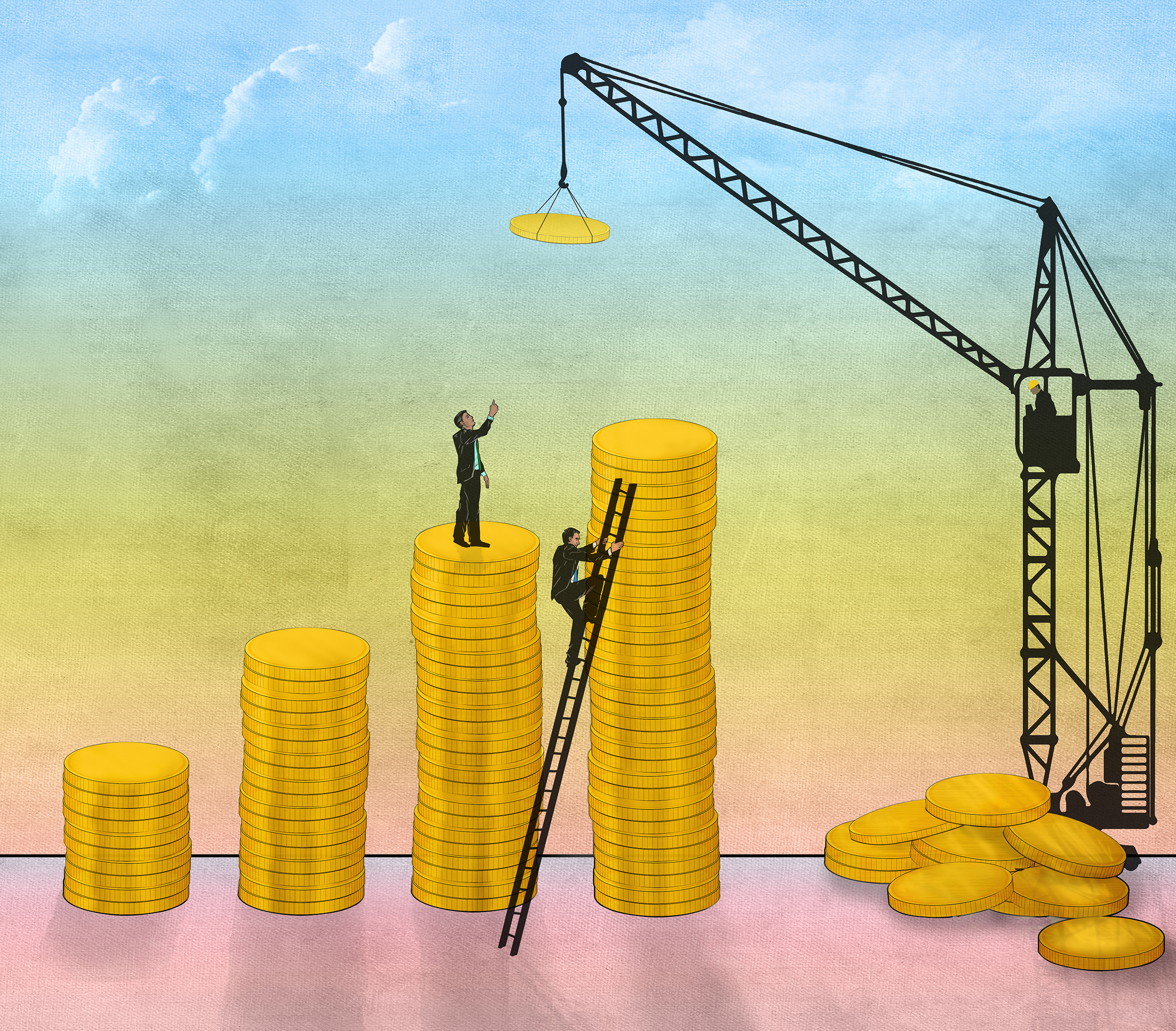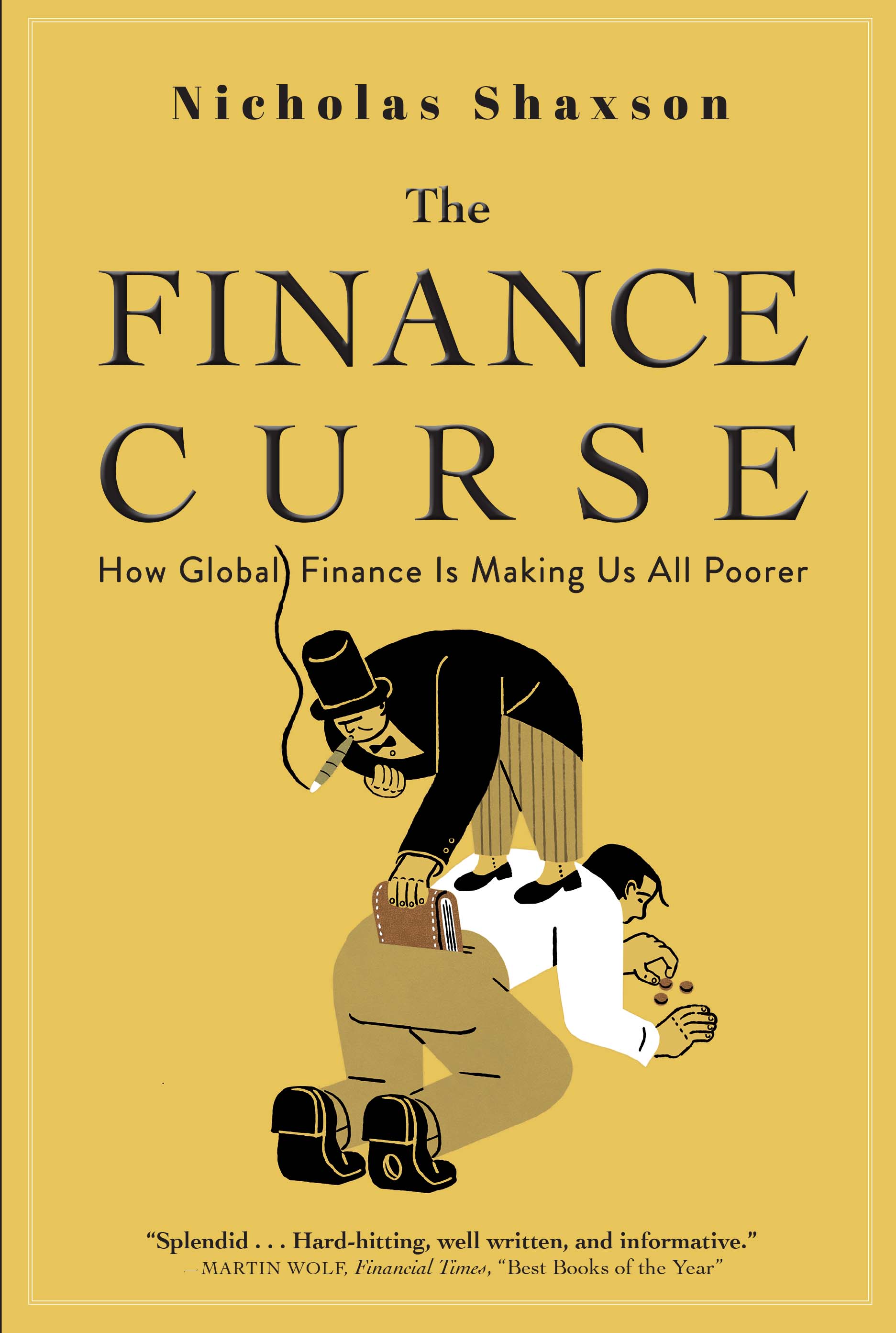
The tiny Baltic state of Latvia, a western member of the NATO alliance nestled against Russia’s northern border with Europe, is especially vulnerable to fake news and foreign influence operations. A quarter of its population is Russian-speaking, a legacy of years of Soviet occupation during the 20th-century, and much of its financial sector is dominated by wealthy Russians close to the Kremlin.
On a visit in 2018 I asked Jānis Bērziņš, director of the Center for Security and Strategic Research at Latvia’s National Defense Academy, how to parry disinformation. Attackers find fertile terrain for fake news, he said, in “inner socio-cultural decay” and in “the gap between governments and societies, the notion that the political class broke the social contract.” The only lasting answer, he said, is to “completely transform the financial model of our economic systems.”
That is also sound advice for the United States, and for many western countries suffering what I call the “Finance Curse.” This is, despite its forbidding name, an optimistic frame of analysis whose core message – shrink finance, to boost prosperity – opens up a world of democratic space to unblock needed reforms.
“Finance” has two interconnected parts. First, the financial sector itself: banks and insurance firms, along with more esoteric, less regulated players: hedge funds, private equity firms, exchange traded funds, and many more. The second part involves the penetration of financial tools, techniques, motives and institutions into the non-financial economy, from manufacturing to agriculture to tourism.
I first grasped the idea that more finance can make us poorer while spending years living and writing about oil-rich countries in west Africa, which have suffered a so-called “Resource Curse”. It’s not just that the elites steal the oil money (though there is plenty of that): in many cases their oil wealth seems to have actually impoverished their citizens. It was certainly true when I lived in Angola in the 1990s, amid an oil- and diamond-fueled civil war.
Later, I discovered a ‘paradox of poverty from riches’ afflicting finance-dominated nations like Britain or the United States too – often for similar reasons.
In both cases, high pay in the dominant sector drains talent from other economic sectors, from government and from civil society. Brilliant people who might have discovered a malaria vaccine or designed effective financial regulations, instead get rich working for an oil company, or trading in risky financial derivatives. Investment is lured away from low-return activities like manufacturing, towards high-return ones, like trading in oil derivatives. When oil, or finance, dominate an economy, government officials turn away from the tough challenges of nation-building and instead jostle to get rich, often via a revolving door of influence between government and the dominant sector. This jostling also promotes corruption, and helps the dominant sector ‘capture’ policy-making too. Economic volatility, whether via roller-coaster oil prices or from recurrent financial crises, inflicts further damage on other sectors. Large financial inflows from overseas also can harmfully distort price levels and the wider economy – not to mention serving as covert channels for foreign interference.
There are also big differences between finance and oil, of course. One involves that penetration of finance into other economic sectors that I described: academics call it ‘financialization.’ Its techniques include loading up real companies with debt to boost immediate returns, using tax havens to dodge taxes or regulations, corporations buying their own stock to goose short-term financial returns (and executives’ stock options), or amassing monopoly powers to extract wealth from consumers, workers and suppliers, and delivering them up to shareholders. Instead of drilling for oil in the ground, they are drilling into main street businesses and into our pockets. This isn’t supporting wealth creation, it’s wealth extraction.
To a large degree, the financial hoards amassed by private equity barons, giant agricultural concerns and other winners of financialization are like the over-inflated Hoover-bags of wealth-sucking vacuum cleaners: not a sign of prosperity, but the flip side of extraction elsewhere.
As well as winnowing our populations into losers and winners, this extractive financial system imposes overall economic costs. Research from the International Monetary Fund, the Bank for International Settlements, and others, consistently finds the same banana-shaped relationship between the size of a financial sector and long-term economic growth, reproduced in several graphs. The left-hand part of each graph, rising, shows that we need finance: to process payments, channel savings into productive investment, and so on. As these functions develop, economic growth benefits. But there seems to be an optimal size – on one measure, roughly when credit to the private non-financial sector reaches 100 percent of GDP – after which the line curves downwards, and further expansion in finance reduces overall economic growth. The United States and Britain both passed that point in the 1980s: their ratios now each exceed 150 percent. According to a 2016 report for the Roosevelt Institute by Professor Gerald Epstein and Juan Antonio Montecino, oversized finance will have imposed cumulative costs on the United States of $13-23 trillion between 1990 and 2023, worth $100-180,000 per American family.
Had the financial sector been smaller, we’d have been richer.

Millions of voters worry there’s a trade off between democracy and economic prosperity: that we can’t tax, regulate or police globetrotting big banks or billionaires too hard, or these wealth creators will cut investment or run away to London or Hong Kong. Lobbyists wield such fears to undermine wealth taxes, strong and effective antitrust rules or banking regulations, proper crackdowns on tax havens, and other popular reforms. But popularizing the idea that “too much finance makes us poorer” skewers these arguments, showing that we can breathe life back into democracy. We can tax and regulate the billionaires and hedge fund managers as voters demand – this will shrink their wealth but the flip side is that it will keep wealth in the real economy where it is created – and boost growth overall.
This agenda can appeal across the political spectrum, from left to right. Elizabeth Warren, a Democrat, and Marco Rubio, a Republican, are among those who have recently produced trenchant critiques of financialized capitalism. The message is simple: tackle the curse of oversized finance, to boost prosperity, to reduce inequality – and to curb the inner socio-cultural decay that fosters fake news. In this simple, hopeful message lies a winning political formula.
More Must-Reads from TIME
- Inside Elon Musk’s War on Washington
- Meet the 2025 Women of the Year
- The Harsh Truth About Disability Inclusion
- Why Do More Young Adults Have Cancer?
- Colman Domingo Leads With Radical Love
- How to Get Better at Doing Things Alone
- Cecily Strong on Goober the Clown
- Column: The Rise of America’s Broligarchy
Contact us at letters@time.com